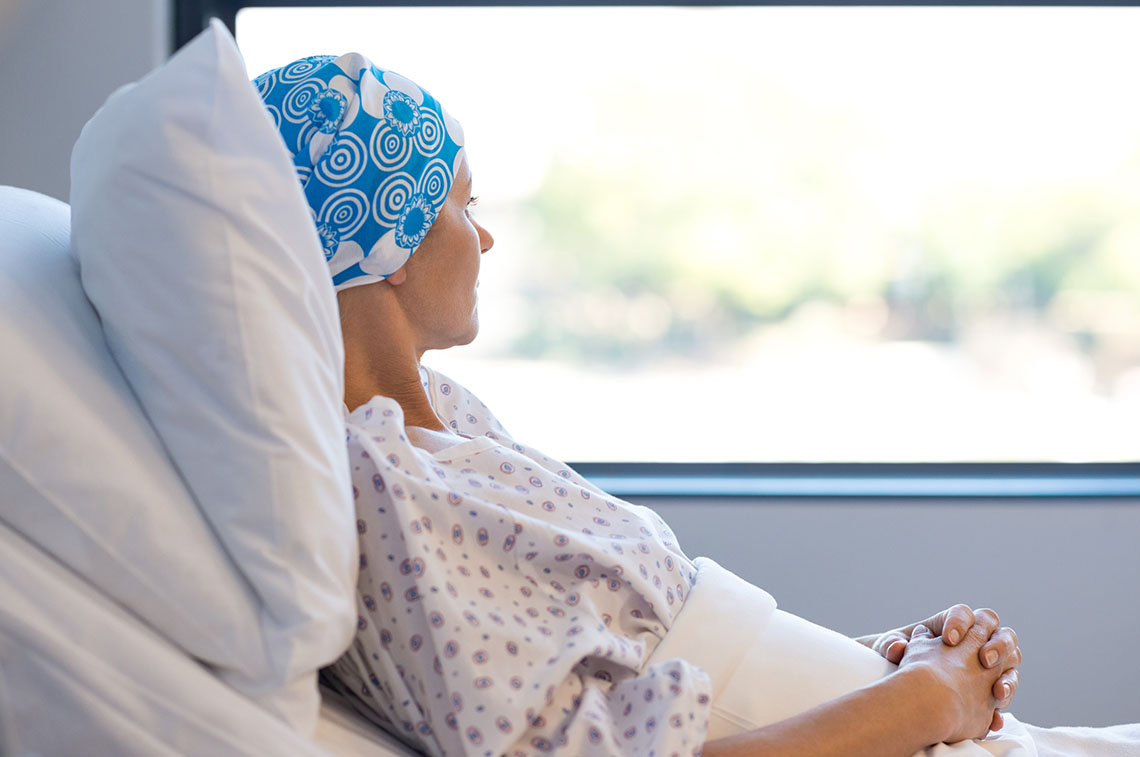Two Critical Chemotherapies Face Nationwide Shortage
Written by Chris S., RN
Picture this: You were recently diagnosed with ovarian cancer.
You have accepted the diagnosis enough to show up for the first round of chemo. Maybe you have already had surgery and are still in pain and healing.
The nurse or medical assistant takes your vitals, reviews your medication list, and then brings you to see the doctor you have already met at the initial visit.
The oncologist looks you in the eye, clearly not happy, and says – You are still starting chemotherapy today, but unfortunately, one of the two chemos is out of stock nationwide, and we don't know when it will return.
Questions and emotions fly through your head; surely this is an error; someone has made a mistake. It was hard enough to accept the fact that you need chemotherapy and that it will be a slow, arduous process with many side effects. And now, that whole process may achieve different results than the complete treatment.
Unfortunately, this has been the reality for many patients since earlier this year. While it's typical for drug shortages to come and go, it's rare with medications that are relied upon during life-and-death situations.
Carboplatin and Cisplatin are two mainstays of many different chemo regimens. Specifically, many treatments combine another chemo with additional platinum-based chemo (Oxaliplatin is an example of another platinum but has different indications).
For example (not a complete list for each):
- Carboplatin: ovarian (main indication but is used as the secondary chemo in small cell lung, breast, and others)
- Cisplatin: ovarian cancer, testicular cancer, and bladder carcinoma
Why is this happening, and who is to blame?
Many blame pharmaceutical companies driven by profit and financial gain. These drugs are considered old, and their patents expired over 20 years ago. Drug manufacturers may not see enough profit in producing them, as they have been around for a long time. For example, carboplatin was patented in 1972, and Cisplatin in 1979.
There is only one leading central supplier overseas for medications, which distributes the concentrated version of the medicine to seven prominent drug companies that finish the drug and send it to hospitals and clinics.
What are other reasons this has happened?
Per the FDA release regarding the situation, there were safety issues at the plant that first made the drugs, which forced the plant to temporarily shut its doors to be brought back to normal safety standards.
How can this be avoided in the future?
That is a good question without an easy answer. These medications are essential enough that we need to have some form of national backup supply and not rely on manufacturers in other countries.
There has been some effort to raise the reimbursement prices of these generics, but it has yet to result in any change. To me, this felt like just prolonging the issue. Who's to say that even after generic prices are raised, the manufacturers would start to produce more and say it still isn't profitable enough?
In my opinion, it would be beneficial for the government to establish plants capable of producing chemotherapies and other medications that are often unavailable. However, my practical side knows that this will never happen without significant healthcare reform.
What are the treatment options for patients affected by the drug shortage?
Unfortunately, there aren't many options other than continuing treatment without one of the critical drugs. Chemotherapy is a slow-moving machine driven by evidence-based results regarding regimen changes. So, it isn't as easy as just choosing another chemo.
Most chemo providers can get some small amounts of the two medications for patients with curative intent, but then that puts the clinic in the awkward position of having to ration care. Limiting healthcare resources may lead to uncomfortable situations where a patient sees another receiving the treatment they were told is unavailable, which can cause further distress and difficulty in communication between patients.
As a nurse, you are taught to do what is best for your patients. But what can you do when you know they aren't getting the best, proven treatment? This predicament is happening and is a difficult situation many of us find ourselves in while caring for these patients. We have to support their decision to continue with a modified treatment.
My analytical side is curious to see if there is a difference in survival rates for this year compared to years past when the data eventually becomes available.
I fear this is just the start and that more drug shortages will be coming. It is a weird dichotomy where hundreds of new medications are being approved every year, despite there being old, tried, and true medications that just aren't being produced. Unfortunately, it is patients that will feel this in the end.
I can't imagine how I would feel if it was me or my family member sitting in the chair and finding out there are fewer options than usual for treatment.
About the Author:
Chris is a Registered Nurse practicing in the field of oncology and is an independent contributor to CEUfast’s Nursing Blog Program. Please note that the views, thoughts, and opinions expressed in this blog post are solely of the independent contributor and do not necessarily represent those of CEUfast. This is not medical advice. Always consult with your personal healthcare provider for any health-related questions or concerns.
If you are interested in learning more about CEUfast’s Nursing Blog Program or would like to submit a blog post for consideration, please visit https://ceufast.com/blog/submissions.




